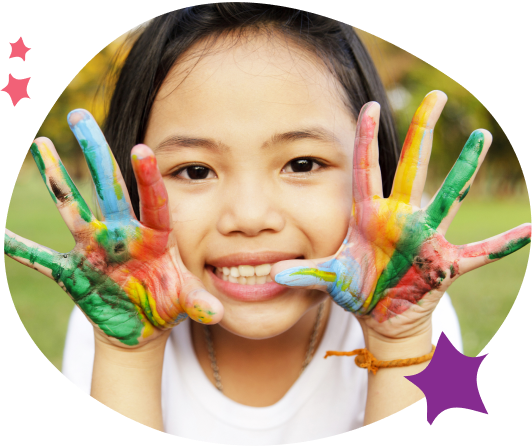In times of conflict and crisis, both children and adults can struggle with a whole spectrum of emotions including anxiety, worry and stress.
As much as we might try to shield our children from the news or attempt to ensure they do not overhear our conversations, children often have a way of picking up on these things.
During these moments of uncertainty, which can be daunting and complex, children look up to the adults in their lives for information, guidance, courage and support. It’s important for parents and caregivers to provide support and comfort to children and young people, especially in periods of tension.
Here are some tips on how to have age-appropriate conversations with children and young people about violence and global conflicts to provide them with the support and answers they may be seeking.
Create a safe space
Creating a safe and non-judgmental space allows children and young people to ask questions and express their emotions about what’s going on. Encourage your child to express their feelings – whatever they may be. Let them know that it's okay to feel sad, angry, or confused about the news they are consuming or current events.
Monitor their exposure to news
As always, it’s important to be mindful of the content your child consumes, such as limiting exposure to graphic images or distressing stories. Older children, especially, may want to know about global events, and in these instances, it will be about ensuring that what they are consuming is age appropriate.
Younger children should ideally be shielded from confronting scenes being presented online and in the media. As a parent or caregiver, you can still provide a comprehensive understanding of world events, without exposing children to unnecessary trauma.
Keep conversations age-appropriate
Ensuring age-appropriate conversations is a fundamental aspect of effective communication with young children. As many global conflicts and events are layered and complex, it is vital to present information in a manner tailored to their emotional maturity and comprehension.
As a parent, you know your child best. Use age-appropriate wording, carefully observe their responses, and be sensitive to their anxiety levels.
Whenever possible, reassure your children that they are safe from danger. It's integral to cultivate a sense of hope by assuring them that there are dedicated global efforts in place and people striving to mitigate conflicts and promote peace.
Check in regularly
Maintain regular check-ins with your children to gauge their emotional well-being. Ask about their feelings and encourage them to share any questions or topics they wish to discuss with you.
If your child appears to be apprehensive or troubled by ongoing violence and conflicts, it's essential to observe any shifts in their behaviour or emotional state. Look out for physical symptoms like stomachaches, headaches, nightmares, or sleep disturbances.
Children can have various responses to challenging situations, and some signs of distress may not be immediately apparent. It's important to remember that many of these reactions are typical responses to stressful events and are often transient. However, if these reactions persist over an extended period, it may be advisable to seek specialised support for your child.
In a world sometimes marked by conflict and violence, it is essential to equip our children with the tools to understand and empathise. By engaging in open, age-appropriate dialogues, you can ensure your children feel heard and supported.

